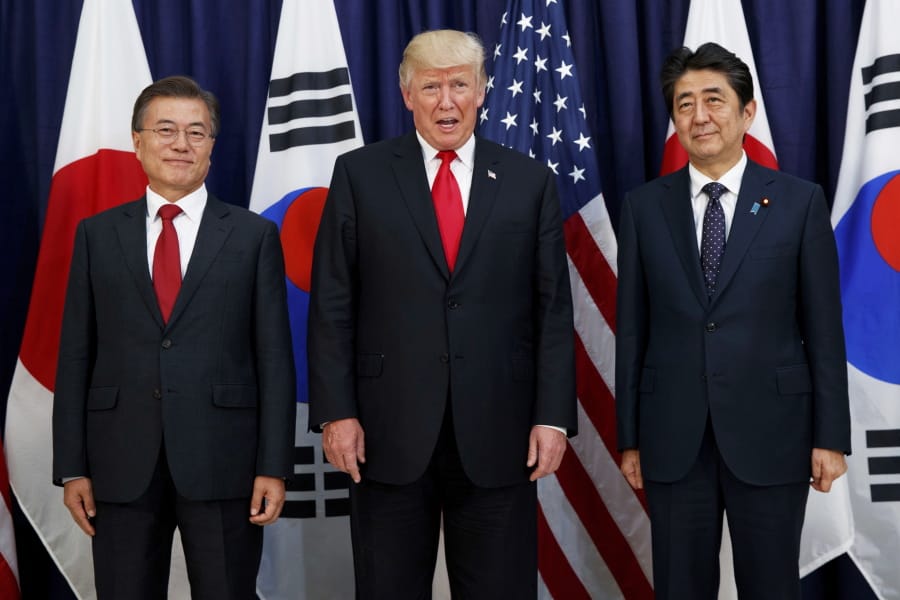When Amanda Berg heard reports that President Donald Trump mocked the accents of the leaders of South Korea and Japan at a recent fundraiser, it brought back painful memories from her childhood.
Berg, a Korean American who grew up in Fort Collins, Colo., recalled kids doing the “stereotypical pulling at the eyes and the mocking accent.” It made her feel like she was a foreigner in her own community.
Berg, a registered Democrat, is among a growing and crucial bloc of Asian American voters leaning further to the left in the age of Trump, and his stunt, reported by the New York Post, angered her and many others.
“It empowers people who would be predisposed to doing that kind of thing anyway,” said Berg, a high school English teacher in Denver. “And it makes it acceptable to be openly, increasingly discriminating.”
Trump has used racist rhetoric to fire up his conservative base ahead of the 2020 election — most notably against four Democratic congresswomen of color. Telling them to “go back” to their home countries triggered widespread outcry in July, but his reported mocking of Asian accents garnered a more tepid reaction.
Some worry the frequency of Trump’s racially offensive remarks makes them easier to shrug off, a concern that could weigh on an Asian American voting group that’s only growing in power.
The Asian American voting-age population has more than doubled in the past two decades, leaping from 4.3 million in 1998 to 11.1 million in 2018, according to the U.S. Census Bureau. A majority of those new voters lean Democratic.
By 2016, some Asian ethnic groups that had leaned Republican shifted into the Democratic camp, said Natalie Masuoka, an associate professor of political science and Asian American studies at the University of California, Los Angeles. A larger share of Asian American Republicans voted for John McCain in 2008 than for Trump in 2016.
A Pew Research Center survey said 53 percent of registered Asian American voters in 1998 identified with the Democratic Party. That figure rose to 65 percent in 2017.
“They are adding more and more new voters to the electorate,” Masuoka said. “Alongside Latino immigrants, they’re important for candidates to mobilize.”
Asian American voters also could become a key factor in swing states. In Nevada, Asians make up 5 percent of registered voters and 9 percent of the eligible voting population. They comprise 5 percent of registered voters in Virginia and are 6 percent of the eligible voting population.
The GOP, meanwhile, remains appealing to Asian Americans who are strongly anti-communist, as many are in Vietnamese communities. Some data also suggests that a large proportion of Filipinos and wealthy, higher-educated Chinese Americans are more likely to go Republican, Masuoka said. There is no solid answer for why, but religion is one often cited reason, she added.



